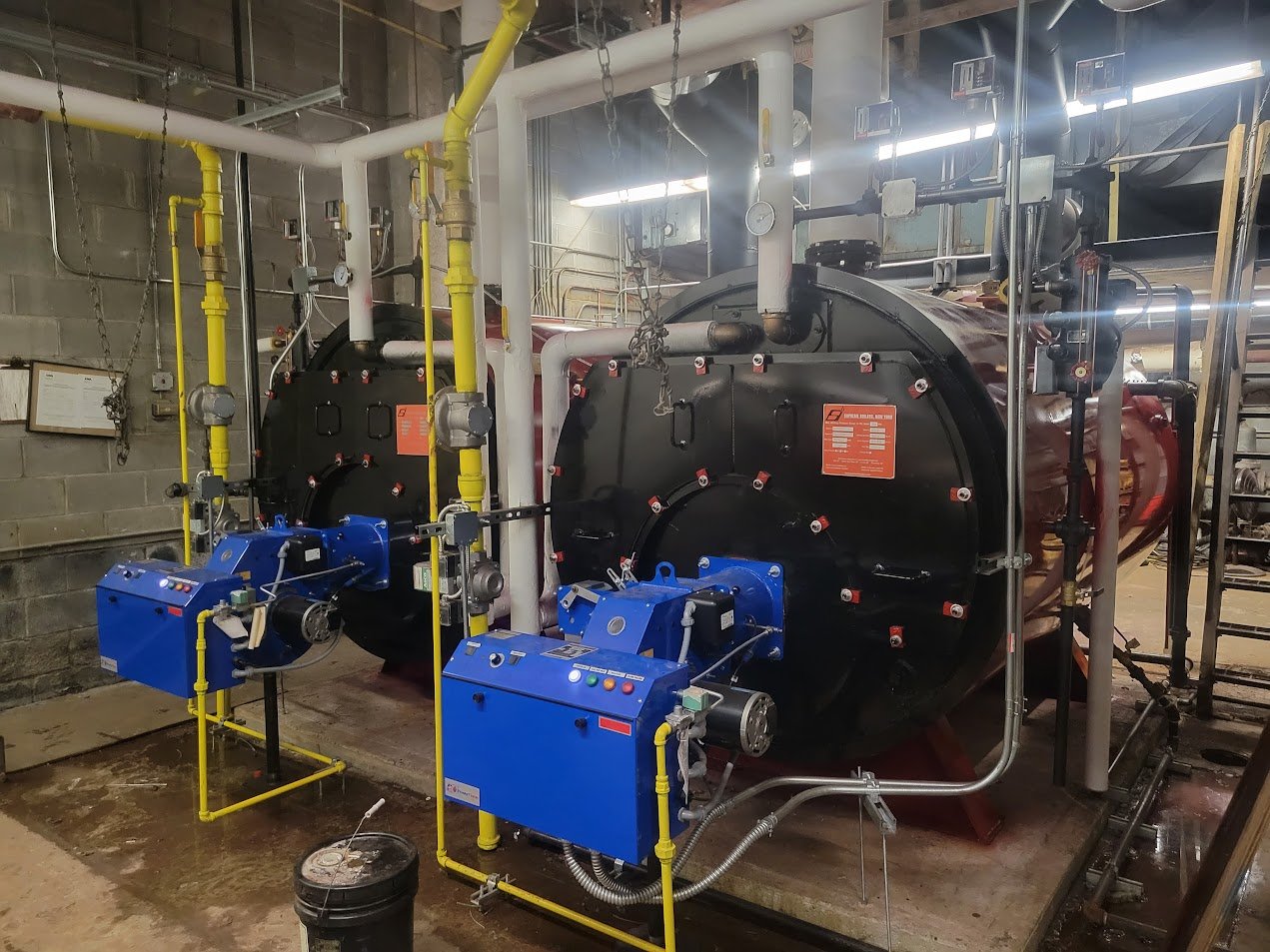Industrial boilers are a critical part of manufacturing, processing, and energy generation in many industries. These powerful machines, however, are a significant source of hazards if not properly maintained and operated. The Occupational Safety and Health Administration has developed guidelines and requirements for the safe operation of industrial boilers to ensure worker safety and reduce risks. Understanding and complying with these requirements is critical for both compliance and the protection of employees.
This blog discusses the major OSHA requirements for industrial boilers, their importance, and actionable steps for employers to maintain safety standards in their facilities.

Why OSHA Standards Matter
Industrial boilers operate at high pressure and temperature, making them a potential source of catastrophic accidents, including explosions, fires, and toxic gas releases. Such incidents can cause severe injuries, fatalities, and extensive property damage. OSHA standards aim to:
- Prevent Accidents: With well-defined operational and maintenance procedures, the chances of equipment malfunctioning are greatly reduced.
- Protect Workers: Safety precautions provide a safe and healthy working environment.
- Boost Compliance: Compliance with OSHA requirements helps avoid legal issues and potential penalties.
- Boost Efficiency: Regular boiler inspections and maintenance increase the boiler life and energy efficiency.
Some Key OSHA Industrial Boiler Requirements
OSHA does not have boiler-specific regulations but does enforce several standards applicable to boiler operation under the General Duty Clause and other specific provisions. Below are the major areas covered by OSHA requirements:
1. Hazard Identification and Assessment
Employers need to identify hazards that exist with boiler operation. Hazards include:
- High-Pressure Failures: Overpressure conditions can cause explosions.
- Burn Hazards: Boilers produce extreme heat, creating a burn hazard.
- Toxic Gas Exposure: Leaks can cause leakage of carbon monoxide and other toxic gases.
Employers are mandated by OSHA to evaluate these hazards and take appropriate control measures
2. Lockout/Tagout (LOTO) Procedures
OSHA Standard 29 CFR 1910.147 provides that employers shall utilize lockout/tagout procedures for control of hazardous energy in operations and maintenance activities. They include:
- De-energize boilers before servicing them.
- Locking out energy sources will prevent accidental startup
- Provide training to employees on LOTO procedures
3. Machine Guarding
OSHA requires that the employees be provided with guards over moving parts and on hot surfaces of machines. Effective guarding can prevent most contact injuries and burns.
4. Personal Protective Equipment (PPE)
Special PPE must be worn by employees who work around boilers in order to prevent heat, noise, and chemical exposures. OSHA Standard 29 CFR 1910.132 prescribes employers to provide employees with adequate PPE that includes:
- Heat-resistant gloves and clothing.
- Noise-reducing hearing protection.
- Respiratory protection against dangerous airborne contaminants.
5. Confined Space Entry
Boilers are commonly classified as confined spaces under OSHA Standard 29 CFR 1910.146. For maintenance or inspection, individuals entering boilers must have their entry into confined spaces completed with the following:
- Pre-entry atmospheric testing
- Ensure ventilation and rescue equipment available
- Ensure trained entry people are assigned to supervise
6. Emergency Preparedness
OSHA mandates emergency action plans (EAPs) be available in facilities. Emergencies related to boilers can include fires or explosions; these require:
- Emergency Exits
- Fire suppression apparatus
- Emergency drills.
7. Training and Competency
Employers shall ensure boiler operators and maintenance personnel are adequately trained. OSHA mentions,
- Understand operational procedures.
- Identify hazards and response to emergencies.
- Ongoing education and periodic retraining.
8. Inspection and Maintenance
Boilers have to be inspected and maintained at regular intervals to keep it safe. OSHA recommends NBIC and ASME for good practices. Some key inspection tasks are,
- Leaks, Corrosion, Wear.
- Testing safety valves and pressure gauges.
- Cleaning and calibrating components.
9. Recordkeeping and Documentation
Keeping detailed records is an essential OSHA requirement. Employers should maintain:
- Inspection and maintenance activities.
- Employee training sessions.
- Incident reports and corrective actions.
Best Practices for Compliance
- Develop a Boiler Safety Program: Design a comprehensive program that addresses all aspects of boiler operation, maintenance, and safety.
- Regular Audits: Regular assessment of safety practices ensures compliance with OSHA standards.
- Foster a Safety Culture: Encourage employees to keep safety as the top priority and report hazards without fear of retaliation.
- Invest in Modern Equipment: Upgrade to advanced boiler systems equipped with automated safety features, reducing human intervention and risks.
- Hire Qualified Inspectors: Work with certified professionals to inspect and repair your boilers.
Achieving OSHA compliance goes beyond mere minimum requirements. Employers can follow best practices to improve safety and efficiency:
Consequences of Non-Compliance
Failure to comply with OSHA regulations can lead to very harsh penalties, such as:
- Fines: OSHA imposes significant monetary fines on violations.
- Operational Disruptions: Non-compliance may lead to shutdowns until issues are resolved.
- Legal Liabilities: Employers may face lawsuits from injured workers or affected parties.
- Reputational Damage: Safety incidents will hurt the reputation of the company and erode stakeholder trust.
Superior Boiler Solutions for Your Facility
Supreme Boilers offers a comprehensive series of cutting-edge industrial boiler systems for facilities in search of improved safety, efficiency, and compliance. Their FPS Series, FST Series, ESP Series, PLW Series, SM4 Series, and SM5 Series are designed with sophisticated safety features, robust performance, and energy efficiency in mind to meet and surpass industry standards. Discover the appropriate solution for your needs by browsing Supreme Boilers’ offerings here, and then integrate it seamlessly into your safety and operational protocols.
Conclusion
Industrial boilers are a vital resource for most industries, but running them is fraught with dangers. OSHA requirements present a framework to minimize such risks, protect the workforce, and ensure efficiency. With an understanding of such standards, employers can better cultivate a safer work environment, maintain regulatory compliance, and maximize boiler system performance.
Whether you are a facility manager, safety officer, or boiler operator, it pays to be informed about what is required by OSHA and best practices. Give top priority to safety; spend money on training and hold regular inspections to make work places as safe and risk-free as possible for your employees.



